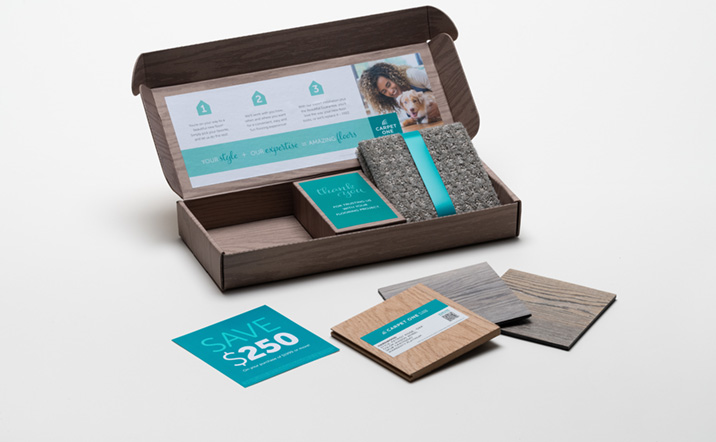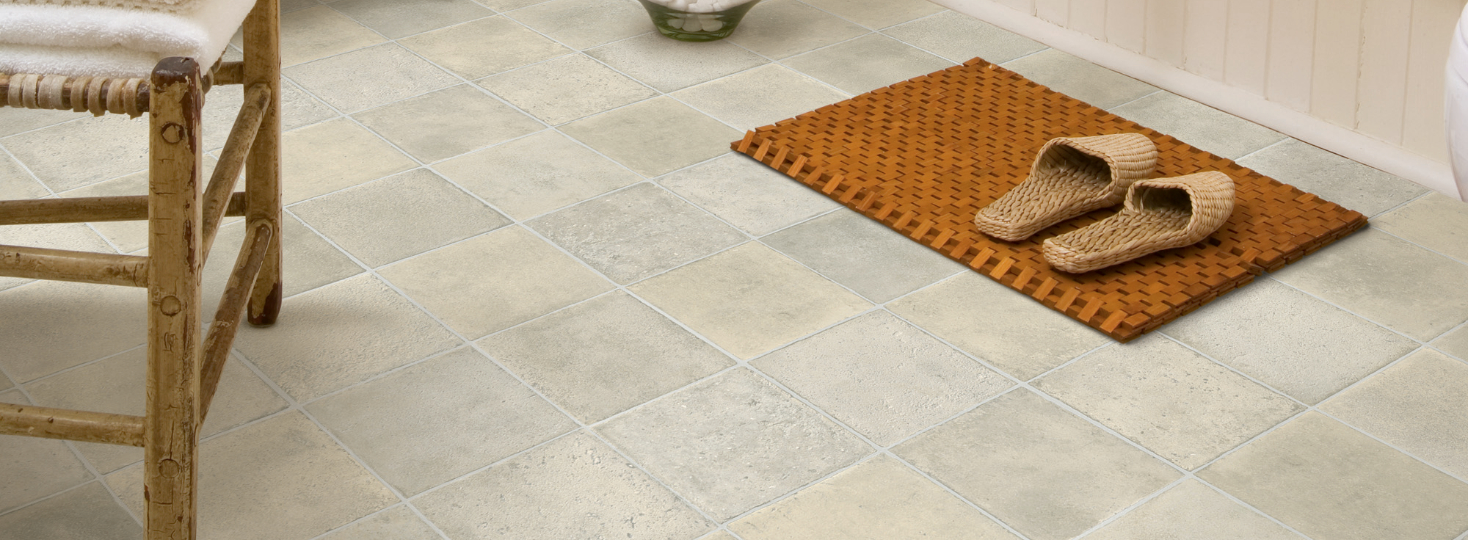
Ceramic Tile Flooring
Often seen as bathroom floor tiles or outfitting kitchens and other high-traffic areas, ceramic tile bridges multiple design styles with ease.

Often seen as bathroom floor tiles or outfitting kitchens and other high-traffic areas, ceramic tile bridges multiple design styles with ease.
No items could be found with the selected filters.
Please try your search again.

Our designers share tips and top trends for every season. Discover your next home project with the help of our blog.

Get up to six samples delivered to your door.

Are you shopping for a versatile flooring option that can hold up to the demands of your busy home? Ceramic tile flooring has been a staple in Mediterranean and Southwest-style homes for centuries for those reasons and more. Often seen as bathroom floor tiles or outfitting kitchens and other high-traffic areas, ceramic tile bridges multiple design styles with ease.
While you might already be familiar with ceramic tiles, have you ever wondered what makes them different from other tiles? Ceramic tiles are made from malleable clay that's dried and fired in a kiln–similar to porcelain tile but at a lower temperature. These tiles are usually glazed to help them resist scratches, cracks, or fading in home use. Traditional Saltillo tiles and others that aren't glazed should be sealed to protect their surfaces from stains.
Because it's virtually impervious to heat, ceramic tile flooring shines in indoor/outdoor spaces just as well as in other areas. The hard ceramic surface holds up to your bustling home, whether it's filled with rowdy kids or a slew of messy pets.
What do you picture when you think of ceramic tile? You might be thinking of boring beige tiled kitchen floors, but in reality, the variety of designs available as ceramic tile flooring far exceed the traditional neutral shades many imagine. Ceramic tile can be printed, embossed, and cut into other shapes, which comes in handy if you're creating unique patterns or colorful mosaics. When shopping for ceramic tile, a wood look is even an option thanks to printed reproductions of natural materials like hardwood.
If you're in the market for a durable tile floor, ceramic tiles just might be the perfect match for you. They resist scratches, stains, and most physical damage. Plus, replacing ceramic tile is a fairly easy process.
On top of all that, glazed ceramic tiles are especially easy to clean, meaning less time worrying about your floors and more time cooking up a storm in the kitchen. Simply sweep or vacuum your ceramic floors with a soft brush attachment, then wipe them clean with a mop or sponge. And if you’ve accidentally caused a stain, treat it with a manufacturer-recommended cleaner so as not to damage the tile.
If you’re looking for a lifelong floor, ceramic is the ultimate floor for you. Just look at long-standing buildings throughout the Mediterranean and you'll see that ceramic tile flooring can last for hundreds of years.
The keys are quality installation, high-quality materials, and routine maintenance, all of which are made easy here at Carpet One Floor & Home with our skilled installers and unbeatable warranties.
Gluing ceramic tiles and filling the joints between them with grout can be tedious and tricky, which is why we recommend leaving tile installation to our expert flooring installers, who can take care of this for you!
We know that ceramic tile flooring is heavy and to prevent it from cracking, a strong floor framing is required. Oftentimes, this rules out ceramic installation on the upper levels of your home, but our flooring professionals are with you every step of the way to offer up their knowledge and make the best choices for your home design.
Smooth, cool ceramic floor tiles offer several useful advantages to you as a homeowner:
What are some disadvantages of having ceramic tile flooring?
Now, you might be wondering, how do I choose between porcelain and ceramic tile? Porcelain and ceramic tile have a lot of similarities. They're used in the same ways and locations, have the same installation method, and share similar pros and cons.
The main difference between porcelain vs. ceramic tile is their makeup. Porcelain tiles are crafted from a finer, purer clay mixture than ordinary ceramic tiles, making them denser and impervious to water. This explains why you often find them in bathrooms and mudrooms! They're also fired at a higher temperature and more brittle than ceramic floor tiles.
Ceramic tiles can be slippery due to their smooth and non-porous surface. If you’re shopping for bathroom floor tiles, look at the product’s slip resistance rating, which can help ensure you choose a safe option for water-prone areas.
Yes, ceramic tiles work well as flooring throughout your home! They easily withstand all the traffic and activity of your active household, take little time and effort to clean, and come in all the colors and styles you can imagine.
Yes! Ceramic tile itself is waterproof, but remember that the grout seams around ceramic tiles are where problems can arise. Keep your grout well sealed and maintained to ensure complete water resistance. If you're looking to tile a high-moisture area like bathrooms and kitchens, consider porcelain tile.
Ceramic tile can last for 100 years or more if it's well cared for and maintained, so you won’t be needing to replace your floors anytime soon! Its long life is dependent on the stability and quality of its installation, which is why we offer worry-free installation services.